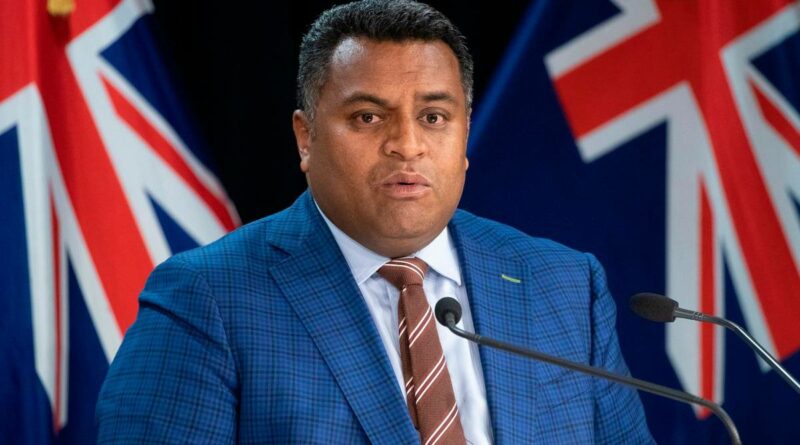Damien Venuto: Will the TVNZ-RNZ mega merger fix anything?
OPINION:
Early on March 18, 1967, the first officer of the Torrey Canyon realised the giant oil tanker was headed for disaster off Cornwall.
He tried to change direction, but sleep-starved captain Pastrengo Rugiati ordered the ship to stay the course to avoid a two-hour delay.
The result of sticking to the plan regardless of the consequences was 119,000 tonnes of crude oil spilling into the ocean and causing an environmental disaster.
In his hit podcast Cautionary Tales, Financial Times columnist Tim Harford uses this story to explain the danger of what psychologists call plan continuation bias – the thing that makes us follow a course of action even in the face of changing conditions.
From the outset, the plan to merge TVNZ and RNZ has felt like an example of plan continuation bias playing out in real time.
The example of the BBC was held aloft as the objective, and every decision has since been informed by the desire to get there.
It now appears that the final destination has taken precedence over the challenges that actually need to be solved.
Even the business case could be seen as an example of plan continuation bias. The Government ostensibly pointed to the destination on the map and asked the consultants to get it there. And presto, what we now have is a plan to get us to that final destination.
The problem with hurtling towards your vision in this way is that it doesn’t always leave enough time to consider the potential collateral damage.
In response to the announcement today, Better Public Media chair Myles Thomas expressed concern about the lack of tangible detail on how the new entity would work.
“The proposal seems to be little more than TVNZ and RNZ pushed together into one organisation and perpetuates many of the existing problems,” Thomas said.
“The minister’s promise of ‘complete editorial independence’ is impossible when politicians control the entity’s funding through the annual budget, as we saw with the RNZ funding freeze.
“Nothing in this announcement suggests that TVNZ is going to improve in any way. It is still expected to be funded entirely through advertising, so it will continue to prioritise reality TV over nightly current affairs for example.”
Thomas said mixed funding models only tended to work when at least half the funding came from government, as in Canada and Ireland.
Facing runaway inflation and ongoing pandemic-associated costs, it’s unlikely the Government will have the appetite to increase its funding.
Thomas argues there is a real risk the existing fabric of RNZ could be markedly weakened if the two organisations are folded together without deeper consideration of the consequences.
“Reliance on funding from the Government’s annual budget means the new entity must compete for funding with NZ’s health, education, transport and housing needs, as RNZ does,” he said.
“We have seen this results in fluctuating funding as friendly and unfriendly governments come and go. A new entity with a commercial arm (TVNZ) would allow future governments to cut funding and force the radio arm, or part of the radio arm, to become commercial.”
There are also some significant worries on the commercial side of the equation, with NZME chief executive Michael Boggs expressing concern about the impact the merger could have.
“Additional government investment into this new entity can only add to the intense competition and cost pressures that already exist across New Zealand’s commercial media,” Boggs said on Thursday.
“With TVNZ seemingly no longer required to pay a dividend to government, this frees up millions for reinvestment into expanding the new entity’s digital platforms, commercial capabilities and journalistic talent pool – further increasing audience and competition for advertising revenues.”
The fact that these concerns come from such different perspectives is reason enough to question whether this is the right course of action, simply because a group of consultants said it was.
But will the Government listen to these voices or just hurtle ahead?
We’ve seen it ignore advice in this way before. Despite numerous red flags being raised by stakeholders over proposed changes to the Credit Contract and Consumer Finance Act, the Government still went ahead with the legislation.
The result is that we’ve seen first-home buyers locked out of home loans and now a messy process of tweaking the legislation to fix the issues.
The Government needs to ensure the same mistakes aren’t made with a challenge as large as creating a long-term public media strategy.
Does this fix anything?
Fundamental to the merger is the assumption that the current media model is no longer fit for purpose and has fallen behind New Zealanders’ consumption habits.
In his statement to the media, Faafoi noted: “New Zealanders are among some of the most adaptive audiences when it comes to accessing content in different ways; like their phones rather than television and radio, and from internet-based platforms. We must be sure our public media can adapt to those audience changes.”
The fixation with the words “television” and “radio” also show a disconnect from what is happening inside media organisations. While television and radio still remain a big focus (rightly so, given the audiences), both RNZ and TVNZ have made enormous strides towards taking their content to other platforms.
The best example would be TVNZ OnDemand, which has grown rapidly in both audience and revenue.
Speaking to the Herald in late February, former TVNZ chief executive Kevin Kenrick noted growth in digital audiences and revenue continued to outpace the decline in television. He said TVNZ OnDemand currently contributed roughly 16-17 per cent of TVNZ’s overall revenue, and that this share would continue to grow.
That is pretty strong evidence of a business that is managing to find new audiences and revenue amid a period of enormous change in the industry.
RNZ doesn’t have the commercial imperative of TVNZ, but has also found new ways to reach audiences. Breaking news stories published on its website are syndicated across New Zealand media on a daily basis and its podcasts are growing in popularity.
This is not to say the media industry is necessarily in great shape. There certainly are major challenges both here and abroad. But we’ve seen little evidence beyond platitudes about the changing media landscape to suggest merging these public entities will do anything to fix the actual problems plaguing the industry.
Perhaps everything will become clearer when further details are revealed in the coming months.
Until then, the media industry remains at the mercy of Captain Faafoi and the destination he has picked on the map.
Source: Read Full Article


/cloudfront-ap-southeast-2.images.arcpublishing.com/nzme/5YGE32BN2ELMIZ7ZA3QE25I56Q.jpg)
/cloudfront-ap-southeast-2.images.arcpublishing.com/nzme/P3U5OU7D65DZ5IMJIZPLX6PECA.jpg)

